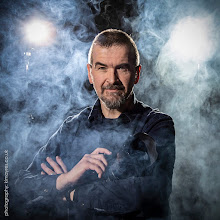Capital Punishment
I started to write in the comments box and realised that there was an entire blog posting's worth by the time I'd finished. As it's been a few days since I last posted anything here I thought I may as well put it here instead...
The question about capital punishment is always one about the state. It is about what kind of country do we want to live in, by what laws, and what fears.
The arguments in favour of capital punishment are generally three-fold: deterrent, punishment and revenge. And it fails in all three of these things.
As a deterrent it makes no difference at all. Anyone who is going to commit a crime such as murder is either doing it in the heat of the moment, in which case they are not thinking of the consequences, or is convinced that they will not be caught, or is prepared to be martyred for their cause. Let's face it, if 20 or 30 years in jail is not going to make you think twice, then being hung/gassed/electrocuted/injected isn’t either.
As a punishment, it can be argued that death is the easy way out. When a criminal is executed they are no longer experiencing any punishment, physically, mentally or emotionally. And certainly they cannot then learn from the experience.
As revenge, it is the most dangerous of things if carried out by the state. Revenge is an emotion that drives an individual to extreme acts. It cannot and should not be driven by a state system - a detached judge and a set of well-paid lawyers.
This is all quite apart from the prospect of a miscarriage of justice. In the UK, for example, during the ‘70s several Irish terrorists were locked away after causing horrible deaths and maiming to ordinary people in series of pub bombings. The crimes were horrific, and if the death penalty had been available as an option to the judges, then it would have been instigated.
But, it turned out, 20 years later, that they didn't actually do the crimes and had in fact been fitted up by the police who were under pressure from an outraged public to do something about it.
The crime may be horrific, but that doesn't justify killing people who "might" have done it.
Every time our government strips away more of our liberties and freedoms, by saying the innocent have nothing to fear, we are in greater danger of miscarriages of justice.
For these reasons I am against capital punishment.
But what, the question goes, if the hideous crime was perpetrated against someone you love and hold dear? Then you would want the bastard dead!
The answer is yes, I would, and I would try and find a way to make it happen. But I would then have to take the consequences of that.
If someone had beaten, raped and killed my daughter, at that point I would no longer care about my life. Ending the perpetrator's would be my only thought. My life would, in effect, be over, as I cannot imagine recovering from such a trauma, so I may as well sacrifice it going after the bastard myself.
But if I killed the assailant, then I will have murdered someone's son/brother/father, and I would have to pay the price for that.
It might sound warped, but I think that revenge is for the individual, not the state, but then they have to pay the price for going down that route. They cannot say I killed him, but I was justified therefore I should go free. The decision about what happens to the person who commits a bloody act of revenge has to be made by the justice system.






Post a Comment